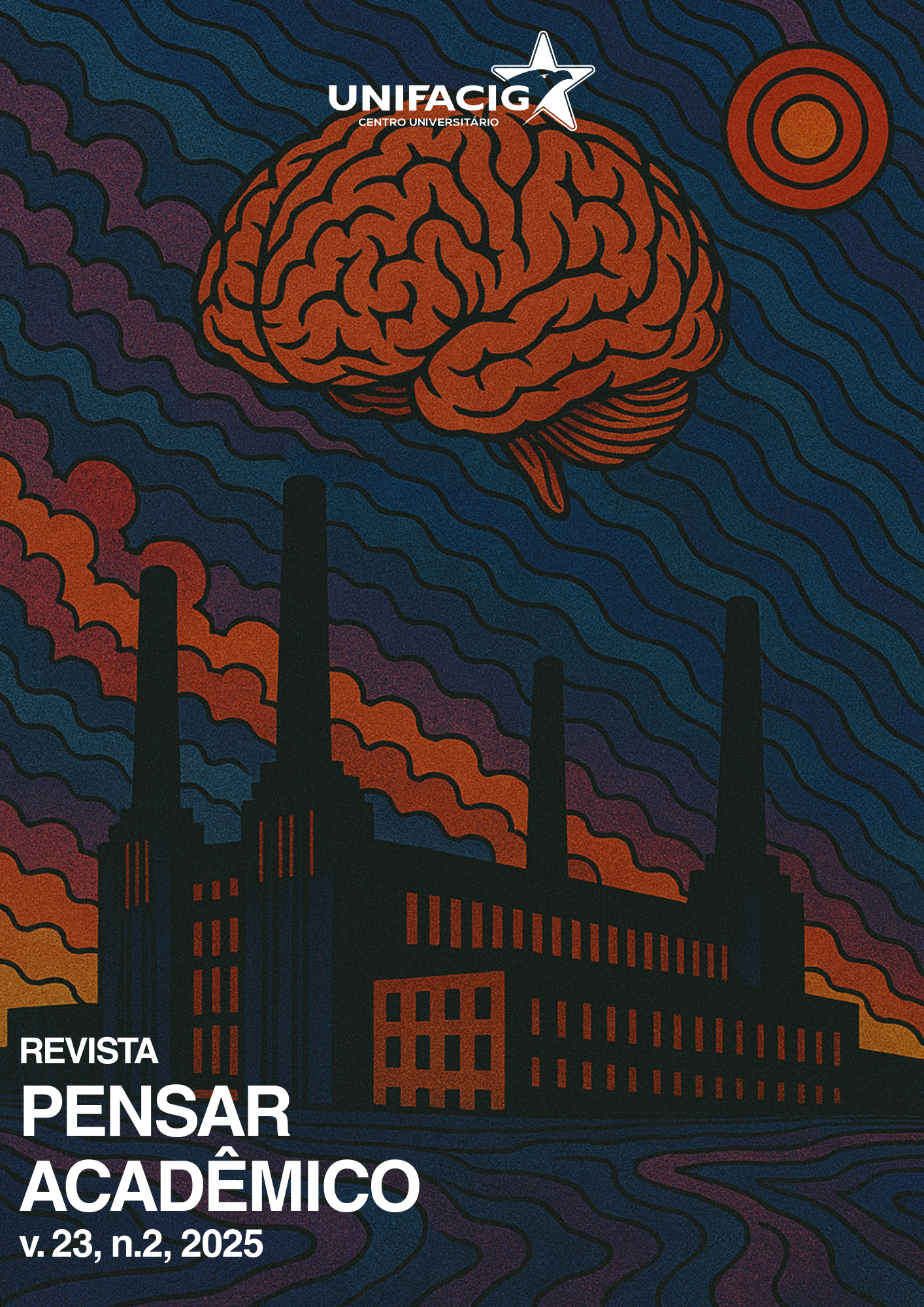METILFENIDATO ENTRE ESTUDANTES DE MEDICINA: DESAFIOS ÉTICOS E DANOS PARA A SAÚDE
DOI:
https://doi.org/10.21576/pensaracadmico.2025v23i2.4304Resumo
O estudo investiga o uso não prescrito de metilfenidato entre estudantes de medicina, destacando os dilemas éticos envolvidos e os riscos à saúde. O metilfenidato, um estimulante do sistema nervoso central, é aprovado para o tratamento de Transtorno de Déficit de Atenção e Hiperatividade (TDAH), mas é frequentemente utilizado de forma inadequada para potencializar o desempenho acadêmico. Este uso é particularmente comum entre estudantes de medicina, que recorrem ao medicamento para melhorar a concentração e aumentar a resistência à fadiga durante períodos de grande pressão acadêmica. O estudo se baseia em uma revisão integrativa da literatura, analisando estudos empíricos e teóricos publicados nos últimos cinco anos. As bases de dados consultadas incluem MEDLINE, LILACS e PubMed, utilizando descritores relacionados ao metilfenidato e ao uso de estimulantes. A pesquisa revela que a pressão intensa para obter desempenho acadêmico de alto nível, aliada à fácil disponibilidade do metilfenidato e à crença de que o uso do fármaco oferece vantagem competitiva, são fatores que incentivam o consumo do medicamento entre os estudantes. No entanto, diversos efeitos adversos foram observados, como insônia, ansiedade, dependência psicológica, alterações de humor e outros problemas de saúde. O estudo conclui que, embora o uso de metilfenidato seja comum, ele apresenta riscos significativos à saúde física e mental dos estudantes. A pesquisa recomenda campanhas de conscientização sobre os perigos do uso indiscriminado do medicamento e sugere a implementação de estratégias regulatórias mais rigorosas para controlar seu acesso.
Downloads
Publicado
Edição
Seção
Licença
Copyright (c) 2025 Pensar Acadêmico

Este trabalho está licenciado sob uma licença Creative Commons Attribution-ShareAlike 4.0 International License. Autores que publicam na Revista Pensar Acadêmico concordam com os seguintes termos:
- Autores mantém os direitos autorais e concedem à revista o direito de primeira publicação, com o trabalho licenciado simultaneamente sob uma Licença Creative Commons Attribution por 2 anos após a publicação, permitindo o compartilhamento do trabalho com reconhecimento da autoria do trabalho e publicação inicial nesta revista.
- Autores têm autorização para assumir contratos adicionais separadamente, para distribuição não-exclusiva da versão do trabalho publicada nesta revista (ex.: publicar em repositório institucional ou como capítulo de livro), com reconhecimento de autoria e publicação inicial nesta revista.
- Autores têm permissão e são estimulados a publicar e distribuir seu trabalho online (ex.: em repositórios institucionais ou na sua página pessoal), já que isso pode gerar alterações produtivas, bem como aumentar o impacto e a citação do trabalho publicado (Veja O Efeito do Acesso Livre).

